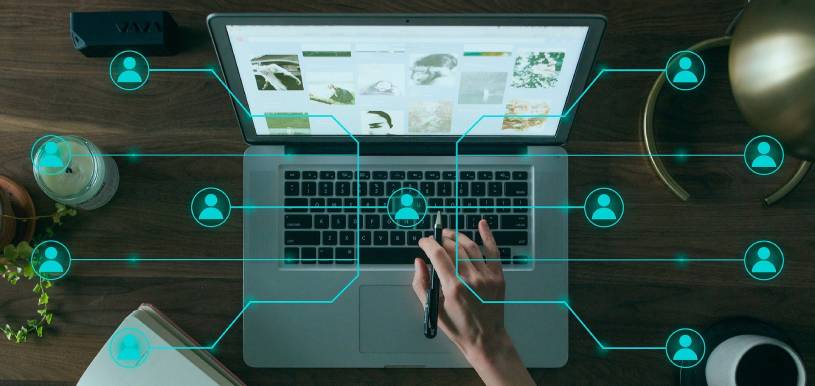The Digital Age and Information Disorders: What Makes You Vulnerable?

Image source: Buffik | Pixabay
The internet has become the primary source of information for people around the world. According to a survey conducted by Pew Research Center, 53% of US adults rely on social media for news, with 36% depending on Facebook as a regular source. Meanwhile, YouTube comes in second place with 23%, followed by Twitter with 15%.
New social technologies have accelerated information sharing, providing easy access to huge amounts of information. Despite that, internet-based media is also characterized by unregulated information flow and the spread of deceiving, inaccurate, and uncheckable information.
Inaccurate and deceptive information is often manipulative and used to evoke suspicion, fear, worry, and anger. Misleading information, created with or without intent, is designed to be sensational and provoking with an aim to attract attention and profit off panic and fears. Research shows that false information tends to spread farther and faster; while fake news brings about emotions like fear and disgust, people are inclined to find false news more novel than factual news.
Misinformation is a widespread problem. However, psychological explanations of information processing can help avoid falling into the trap of misinformation and build mental resilience by embracing a more critical and skeptical approach. It is important because individual and societal wellbeing is related to having an accurate picture of social reality.
Let’s first acknowledge what contributes to the pervasiveness of misinformation on the internet-based media.
The problem with the internet-based media
Digital media has allowed individuals to be active in content production, leading to a wide range of personalities and opinions appearing on online platforms. One of its drawbacks is the absence of assurance regarding content quality and credibility.
Digital transformation of media platforms has enabled algorithms and automation to govern content recommendation and filtering of information. In other words, not every user on social media receives the same news feed. As such, the algorithmic selection of social media sourced news plays a role in the creation of an echo effect in which users encounter information that resonates with their opinions and beliefs.
The term echo chambers is coined to describe the exposure people have only to opinions that they agree with on social media. This is regardless of being true or false. In turn, their opinions and preferences are being amplified.
Cognitive biases of information processing
The accuracy of information found on social media platforms is often unclear. Additionally, echo chambers limit users’ ability to encounter content that might challenge their opinions. Due to these two factors, the responsibility to evaluate the information’s credibility and make decisions now falls on the user and their conscious efforts to do this task. However, perceived credibility is not free from one’s interpretations and preformed notions. How users select reliable sources of information and evaluate their credibility presents new challenges in internet-based media.
Cognitive processes are involved in making a judgment while cognitive biases determine what information is accepted or rejected. Cognitive biases and faulty reasoning in processing certain information can influence one’s decision-making. This may make information seekers vulnerable to misinformation.
Information processing is influenced by one’s preexisting beliefs which connect to confirmation bias as it plays a role in shaping information consumption patterns. Confirmation bias consists of three components: information search, evidence interpretation, and memory recall. These three components are often biased in support of one’s previously held beliefs, expectations, and preferences for information that complies with their attitudes and justifies their opinions.
People unconsciously may engage in biased search processes to seek out information that supports their preconceptions about a certain topic. Biased searching for supportive information may result in poor decision-making. Information that confirms and reinforces users’ preexisting beliefs may be interpreted as being more persuasive. Simply put, confirmation bias means actively seeking confirmatory evidence.
As a result, users may end up outweighing positive confirmatory evidence without questioning the credibility and even refute or ignore evidence if it challenges their beliefs. Confirmation bias may also become salient when people rely on their background knowledge and experiences in information processing.
Bias blind spot is another form of cognitive bias. It refers to recognizing biases that other people have in their judgments while believing that one is free from their own biases. If you are likely to detect the existence of biases in others more than in yourself, it might be a good idea to do some self-reflection first.
Conclusion
Neither echo chambers nor confirmation bias can be eliminated completely; however, through digital wellbeing skills, their impact can be managed. The use of social media as a source of information presents both benefits and challenges; whether it maximizes or diminishes an individual’s wellbeing benefits depends on the user’s media consumption and online behaviors. Checking one’s own cognitive biases is one way towards enhancing wellbeing. Being aware of confirmation bias and taking steps to perform a critical stance towards one’s preexisting beliefs and preconceptions can be achieved by performing critical thinking and learning how to learn.
Being conscious consumers of digital media is a way to manage challenges and optimize one’s wellbeing as a result of online behaviors. To better equip an individual from the negative impacts, developing digital wellbeing skills can help in controlling stress resulting from the overwhelming flow of (mis)information and communication overabundance. This is done by efficiently filtering one’s attention to focus on one’s personal goals and wellbeing.

